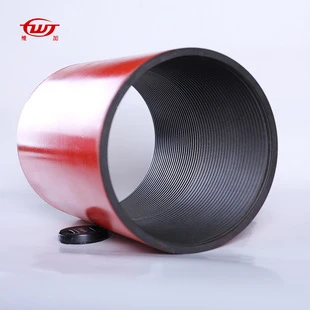- Afrikaans
- Albanian
- Amharic
- Arabic
- Armenian
- Azerbaijani
- Basque
- Belarusian
- Bengali
- Bosnian
- Bulgarian
- Catalan
- Cebuano
- Corsican
- Croatian
- Czech
- Danish
- Dutch
- English
- Esperanto
- Estonian
- Finnish
- French
- Frisian
- Galician
- Georgian
- German
- Greek
- Gujarati
- Haitian Creole
- hausa
- hawaiian
- Hebrew
- Hindi
- Miao
- Hungarian
- Icelandic
- igbo
- Indonesian
- irish
- Italian
- Japanese
- Javanese
- Kannada
- kazakh
- Khmer
- Rwandese
- Korean
- Kurdish
- Kyrgyz
- Lao
- Latin
- Latvian
- Lithuanian
- Luxembourgish
- Macedonian
- Malgashi
- Malay
- Malayalam
- Maltese
- Maori
- Marathi
- Mongolian
- Myanmar
- Nepali
- Norwegian
- Norwegian
- Occitan
- Pashto
- Persian
- Polish
- Portuguese
- Punjabi
- Romanian
- Russian
- Samoan
- Scottish Gaelic
- Serbian
- Sesotho
- Shona
- Sindhi
- Sinhala
- Slovak
- Slovenian
- Somali
- Spanish
- Sundanese
- Swahili
- Swedish
- Tagalog
- Tajik
- Tamil
- Tatar
- Telugu
- Thai
- Turkish
- Turkmen
- Ukrainian
- Urdu
- Uighur
- Uzbek
- Vietnamese
- Welsh
- Bantu
- Yiddish
- Yoruba
- Zulu
casing collar
The Role of Casing Collars in Oil and Gas Operations
In the oil and gas industry, the process of drilling a well is both intricate and crucial to the successful extraction of hydrocarbons. One of the essential components in well construction is the casing collar. Casing collars play a significant role in maintaining the integrity of the wellbore and ensuring efficient operations throughout the life of the well.
What is a Casing Collar?
A casing collar is a metallic ring that is attached to the casing pipe at specific intervals. These collars serve several purposes, including marking the locations of joints, providing structural integrity, and facilitating the installation of additional equipment. Typically made from steel, casing collars are designed to withstand the harsh conditions encountered in subsurface environments, including pressure, temperature, and corrosive elements.
Functions of Casing Collars
1. Depth Reference Casing collars serve as reference points for the depth of the casing within the wellbore. They are strategically placed at regular intervals, allowing drillers and engineers to accurately measure and identify the position of the casing. This is critical for depth surveys, logging, and other operations that rely on precise measurements.
2. Structural Support The primary function of casing is to provide structural support to the borehole and prevent its collapse. Casing collars add to this support by reinforcing the joints between casing segments. This ensures that the well can withstand the external pressures and forces exerted by surrounding rock formations.
casing collar

3. Facilitation of Equipment Installation Casing collars provide locations where additional equipment can be installed, such as packers, valves, and monitoring devices. These installations are crucial for maintaining the well and managing fluid flow during the production phase. The presence of collars makes it easier to attach and detach these components when necessary.
4. Well Integrity Monitoring Casing collars contribute to well integrity monitoring. They can house sensors that monitor pressure and temperature, allowing operators to detect any anomalies that may indicate potential issues in the well. Early detection of problems is key to preventing costly interventions and ensuring safe operations.
Importance in Well Design
Incorporating casing collars in well design is essential for optimizing drilling performance and ensuring well integrity. The spacing and placement of these collars need to be meticulously planned during the design phase. Engineers must consider various factors, including the geological conditions, expected pressures, and the type of fluid being produced. This careful planning helps in reducing risks associated with wellbore instability and other operational challenges.
Conclusion
Casing collars play a pivotal role in the oil and gas industry, acting as critical components that aid in well construction, monitoring, and maintenance. Their ability to provide structural support, facilitate equipment installation, and serve as reference points enhances the overall efficiency of drilling operations. As the industry continues to evolve with advancements in technology and engineering practices, the importance of casing collars remains undeniable. Properly designed and implemented, they contribute significantly to the safe and economic extraction of valuable resources beneath the Earth’s surface.
-
Tubing Pup Joints: Essential Components for Oil and Gas OperationsNewsJul.10,2025
-
Pup Joints: Essential Components for Reliable Drilling OperationsNewsJul.10,2025
-
Pipe Couplings: Connecting Your World EfficientlyNewsJul.10,2025
-
Mastering Oilfield Operations with Quality Tubing and CasingNewsJul.10,2025
-
High-Quality Casing Couplings for Every NeedNewsJul.10,2025
-
Boost Your Drilling Efficiency with Premium Crossover Tools & Seating NipplesNewsJul.10,2025







